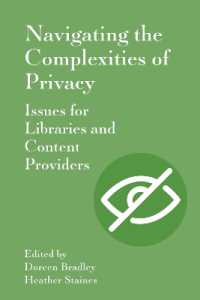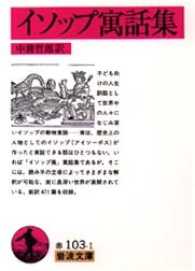- ホーム
- > 洋書
- > 英文書
- > Politics / International Relations
Full Description
Dialogue is typically hailed as a progressive force fostering mutual understanding and resolving conflicts. Can it really carry such a burden? Does dialogue really resolve conflicts? In this unique volume international experts critically assess the political role of dialogue, addressing its potential and limitations. Bringing fascinating insights to bear they examine the theoretical underpinnings and conceptual boundaries of dialogue as a tool for conflict resolution. Major recent crises such as the Russo-Georgian war in 2008, the conflict between Western powers and Gaddafi's Libya, arguments over Iran's nuclear programme, religious tensions in Egypt after the Arab Spring, the Afghan case, the Sudanese experience and the recent Russo-Ukraine conflict are all considered and the conflict resolution attempts discussed. Using these cases the contributors explore in depth the nature of the dialogue between the actors, the extent to which it worked and what determined its impact.
Contents
Chapter 1 Introduction, PernilleRieker; Chapter 2 Diplomacy and Dialogue, Ole JacobSending; Chapter 3 The Dysfunctions of Non-party Conflict Diplomacy, HenrikThune, FridaNome; Chapter 4 Dialogue in a World of Emotional Politics, PaulSaurette, HenrikThune; Chapter 5 What Makes Dialogue and Diplomacy Work or Not? Russia - Georgia and Russia - Ukraine, Jakub M.Godzimirski; Chapter 6 Nuclear Diplomacy, SverreLodgaard; Chapter 7 Libya, MålfridBraut-Hegghammer, PernilleRieker; Chapter 8 Peace Dialogue, the Afghan Case 2001-2014, MichaelSemple; Chapter 9 The Attempts of Dialogue in Sudan, JohnAshworth; Chapter 10 Dialogue as Tool for Addressing Religious Tensions, GeorgesFahmi; Chapter 11 Conclusions, PernilleRieker, HenrikThune;








